Future of Work podcast

Researchers from Utrecht University's Future of Work hub, together with practitioners, share the latest insights on work as well as current affairs in this monthly podcast. It is made in cooperation with People Power, a programme on New Business Radio.
Listen and subscribe
You can also listen to the Future of Work podcast on Spotify, at Apple Podcasts, Google Podcasts and on Soundcloud. Each month, one episode of the People Power programme is produced by the Future of Work hub at Utrecht University.
Want to keep up to date with all the podcasts? Then sign up for People Power on WhatsApp. Save the number 06 45 66 75 48 in your contacts, send a message "PODCAST ON" and we will keep you informed about new episodes.
Every Monday from 3 to 5 pm, you will hear People Power on New Business Radio. Do you want the programmes on your mobile for free and automatically? Subscribe to the podcast here.
If you want to know how to get our podcast on your iPhone, Android, Computer or SONOS, click here for our guide.
Episodes of the Future of Work podcast:
Continuing to work after the state pension, how can it work?
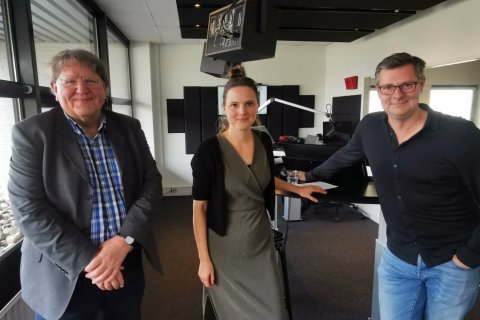
In early 2022, the UWV's 'Tension Indicator Labour Market' reached a new record. For the first time, the labour market was 'very tight'. Possible solution to the shortages, is for people to work more hours and especially for part-timers. Employers' association AWVN, among others, advocates this. However, there are also increasing numbers of people on AOW who want to continue working longer. Who are they? Can everyone do it? How should you prepare for this? How do you tackle it? In the studio are two experts to answer these questions: Joop Schippers, professor of labour economics; and Marleen Damman, associate professor in the Department of Sociology, both at Utrecht University.
Childcare: the faltering engine of the labour market

One childcare pedagogical professional can put seven parents to work. Childcare is the silent engine of the economy. However, due to staff shortages, that engine is faltering. The consequences include great discontent within the industry and gigantic waiting lists for families. Due to high levels of absenteeism, childcare centres are sometimes forced to close groups. Qualified staff are hard to find in the tight labour market.
Why don't more people want to work in childcare? Will more parents soon have to switch to informal childcare? Or will grandparents have to bear the brunt? What effects do the shortages have on labour force participation and family roles? In the studio, Mara Yerkes, associate professor of interdisciplinary social sciences at Utrecht University; and Monique Wittebol, chairperson of the board of directors of Bink childcare and vice-chairperson of Branchevereniging maatschappelijk kinderopvang, explore answers to these questions.
One Size, Fits Nobody in sustainable employability
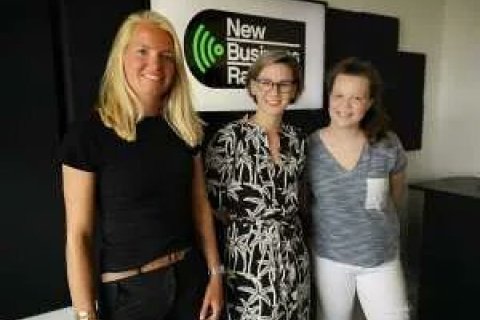
With the healthcare sector desperate for staff, attracting and retaining nurses has become vital. Working in healthcare is often described as valuable, responsible and dynamic. Yet many nurses drop out early. How long nurses stay working somewhere is related to their job satisfaction. Researchers at Utrecht University started a diary study on sustainable employability among nurses at UMC Utrecht and Diakonessenhuis. How are job satisfaction and sustainable employability actually related? Why is it different among nurses than in other sectors? Does it correspond to real-life experiences? In the studio are Evelien van Leeuwen and Renée Vermeulen, both PhD students at Utrecht University; and Milou Steenbergen, nurse and nursing scientist at UMC Utrecht.
Hoe staat het met de arbeidsmarktsituatie van huiswerkers?
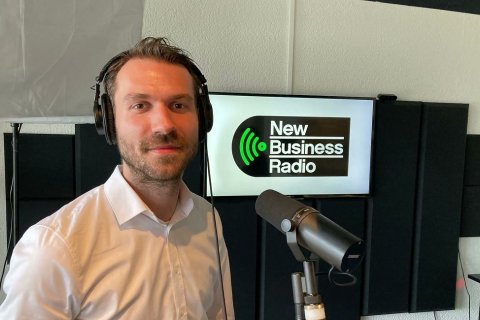
The position of domestic workers in the labour market could use a polish. More and more people in the Netherlands need help at home. Think of jobs like cleaning, garden maintenance, or walking the dog. How can you design the home service system to strengthen the position of domestic workers? That is the research question that researchers from the Future of Work hub are carrying out on behalf of the Institute Gak. This is because the current system is very complex and has its drawbacks.
Using innovative, interdisciplinary research, they want to find out which measures are promising and effective. What are the best practices? How do we strengthen the position of domestic workers? What do domestic workers themselves actually think about this? We have invited two experts to shed some light on the matter: Joop Schippers, professor at Utrecht University; and David de Kort, researcher at Utrecht University. Both are involved in the Future of Work Hub.
How do we solve the teacher shortage?
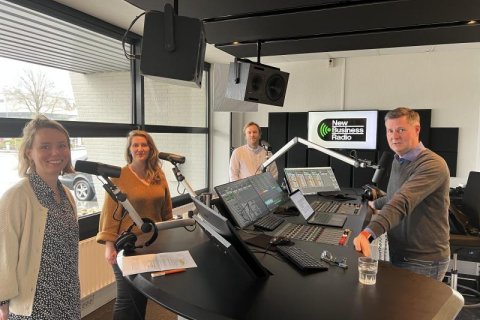
"Human resource policy in secondary education is becoming more strategic, which is a good development," says Julia Penning de Vries. The alignment between HR policy and organisational goals is improving. A major stumbling block often appears to be implementation, which is the responsibility of managers, team leaders, middle management. "The support of the manager is a very important condition and predictor of whether people stay with an organisation or leave," says de Vries.
She speaks in this broadcast together with Fleur Veringa, policy advisor on teacher shortage in the VO-raad (Secondary Education Council) and Marius Bilkes of Hybrid Teacher. The teacher shortage was predicted a long time ago, but it has still not been solved. Indeed, if we do nothing, the shortage will only get worse. How do we make the profession more attractive?
LGBT+ talent big opportunity for employers in tight labour market
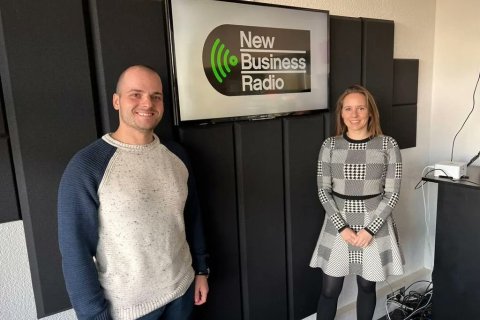
"Do I tell or don't I tell?" This question preoccupies many lesbian, gay and transgender jobseekers during, say, a job interview. The emancipation of these groups is anything but complete and inequality is often palpable for them when looking for work. In the labour market, not everyone is treated equally, although we often think they are. Where does this lie? How can we fix it? Can LGBTQ people themselves do something about it? Glenn van der Burg discusses this and more with his guests in the studio Deni Mazrekaj, assistant professor of Sociology at Utrecht University; and Chantal van der Putten, president of Student Pride NL.
More women in leadership positions: What's the impact?
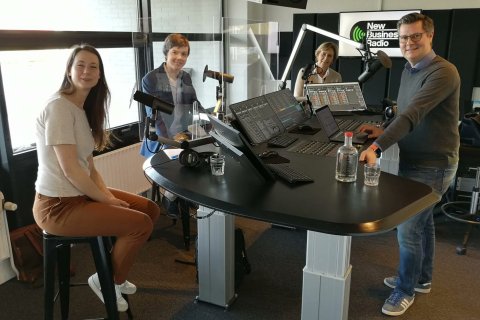
The ratio in the number of male and female executives and directors is far from balanced. The suitability of women for top jobs is not in doubt among Dutch people, according to CBS. The focus is mostly on how women can advance to the top. What little attention is paid to, however, are the effects once they are there? This is what Utrecht University is researching, including in the Future of Work hub.
How does it affect an organisation when there are more female managers? Does it solve practical problems such as the gender pay gap? How does a female executive change organisational culture? In the studio, presenter Glenn van der Burg talks to Jelle Lössbroek, postdoctoral researcher in sociology at Utrecht University and associated with the Future of Work hub. The men talk to Dr Margriet van Hek, universitaitr lecturer in Radboud Social Cultural Research and Sociology at Radboud University; and Mariëtte Turkenburg, chair of Talent to the Top.

